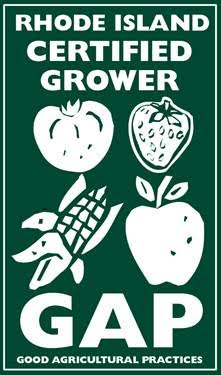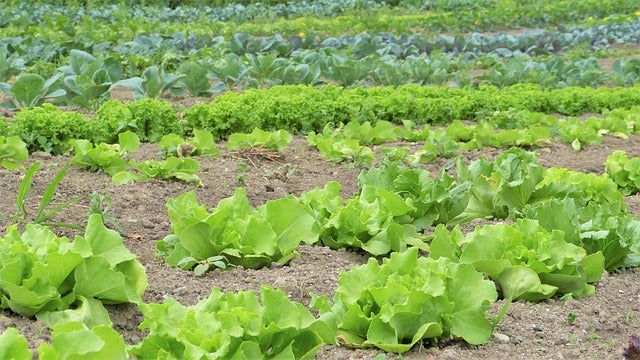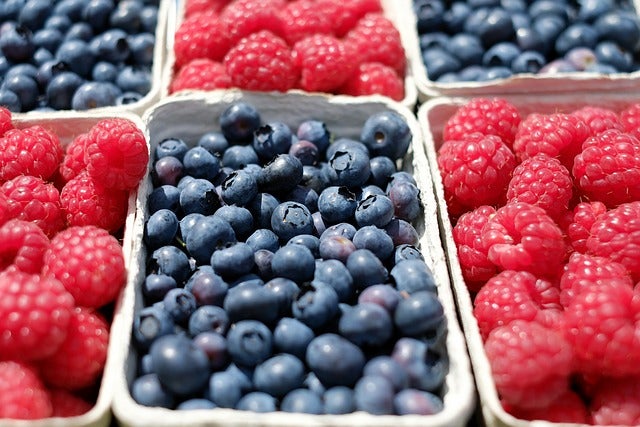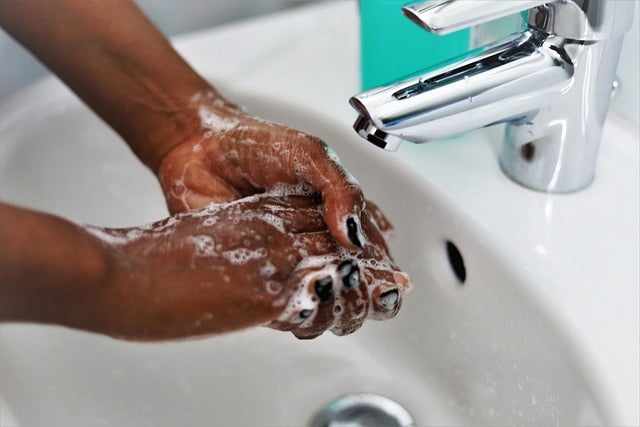Food safety is a shared responsibility across the entire food system, involving growers, processors, government agencies, and consumers. This webpage is dedicated to sharing best practices for growing produce safely and includes information on the Rhode Island Good Agricultural Practices (RIGAP) program as well as the Food Safety Modernization Act (FSMA) Produce Safety Rule (PSR). Our goal is to reduce the risk of foodborne illness by equipping Rhode Island farmers with the tools and training needed to identify potential hazards and implement effective safety measures on their farms. Be sure to check out the resource section at the bottom of this page!
Produce Safety Training
This training satisfies the training requirement for both the Produce Safety Rule and the RI Good Agricultural Practices program.
Learn more and register for the next training on March 10 and 17, 2026
Additional Information about Produce Safety Training
The University of Rhode Island (URI) and the Rhode Island Department of Environmental Management (RIDEM) collaborate to provide training that meets the requirements for both Rhode Island Good Agricultural Practices (RIGAP) and the FDA’s Produce Safety Rule (PSR). Upon successful completion, participants will receive an official training certificate from the Association of Food and Drug Officials (AFDO).
What is the RIGAP Program?
The Rhode Island Good Agricultural Practices (RIGAP) program is a voluntary food safety initiative aimed at reducing the risk of contamination in fresh produce. This program teaches farmers how to implement Good Agricultural Practices (GAP) during growing, harvesting, processing, and transportation.

How do I become a RIGAP Certified Farm?
The first step is to attend a URI/RIDEM Produce Safety Training to obtain your certificate of training. After training, growers can request an educational site visit with Sejal Lanterman from URI to assess their standing with RIGAP guidelines. Next, RIDEM will contact you to schedule an audit. Once certified, farms must renew their certification annually through a RIDEM audit.
What Farms are currently RIGAP certified?
Arcadian Fields, Barden Family Orchard, Bramblenook Farm, Brandon Family Farm, Confreda Greenhouses & Farms x2, DeCastro Farms, Farming Turtles, Ferolbink Farms, Fogland Ferry Farm, Gather Farm, Gotham Greens Providence, Hallene Farm, Harmony Farm, Interstellar Microgreens, Jaswell’s Farm, Lucayda Farm, Maplewood Farm, Perugino & Son Farm, Open Farms Retreat, Our Kid’s Farm, Phantom Farms, Pippin Orchard, Quonset View Farm, RI Farm Incubator Shewatuck Farm, RI Mushroom Co, Salisbury Farm, Schartner Farm, Scituate Nursery, Farm, and Greenhouses, LLC., Steere Orchard, Sweet Berry Farm,The Greene Co, Tockwotton Farm, URI East Farm, URI Gardner Crops Research Center, WestBay Farm, Wishing Stone Farm and Young Family Farm.
What is the Produce Safety Rule?
The Produce Safety Rule, part of the Food Safety Modernization Act (FSMA) of 2011, sets federal standards to minimize microbial risks in fresh produce—the first major food safety law in over 70 years.
Do I have to comply with the Produce Safety Rule?
If your farm grows, harvests, packs, or holds produce, the Produce Safety Rule likely applies to you. If you process food, you may also need to comply with Good Manufacturing Practices (GMP) and Preventive Controls for Human Food rules. Use RIDEM’s Produce Safety Rule Coverage Tool to determine your farm’s requirements.
Do you grow, harvest, pack or hold produce?
All produce farms in RI are now required to register annually with the RI Department of Environmental Management (RIDEM)/Division of Agriculture. Registration can now be completed through the RI Produce Safety Portal.
Resources for Commercial Produce Growers
Funding for this publication was made possible, in part, by the Food and Drug Administration through grant par-16-137. the views expressed herein do not necessarily reflect the official policies of the department of health and human services; nor does any mention of trade names, commercial practices, or organization imply endorsement by the united states government.




